Best Rewards Credit Cards
The best rewards credit cards offer generous perks on everyday purchases, helping you save money from rising prices. Here are Kiplinger's top picks.

Lisa Gerstner
- Best rewards credit cards for flat-rate cash back
- Best cards with rotating categories
- Best cards for savers
- Best rewards credit cards for groceries
- Best credit cards for fuel and EV charging
- Best rewards credit cards for travel with no annual fee
- Best travel cards worth the annual fee
- Best credit cards for flexible travel redemptions
- Best cards for luxury travel
- Best airline cards
- Best hotel cards
- Best dining rewards cards
- Best cards for small businesses
- Best cards for shopping rewards
- Advice on using rewards credit cards
- Methodology
- What are points or miles worth?
- How to pick a rewards credit card
Profit and prosper with the best of Kiplinger's advice on investing, taxes, retirement, personal finance and much more. Delivered daily. Enter your email in the box and click Sign Me Up.
You are now subscribed
Your newsletter sign-up was successful
Want to add more newsletters?
We may earn compensation when a customer clicks on a link, when an application is approved, or when an account is opened. We may not cover every available offer. Our relationship with advertisers may impact how an offer is presented on our site but our editorial selection of products is made independently. Terms apply to American Express benefits and offers. Enrollment may be required for select American Express benefits and offers. Visit americanexpress.com to learn more. We calculate a typical annual reward for each card, assuming $36,000 spent annually and less any annual fee. Interest rates, fees, rewards and other terms listed in this article are subject to change. Before you apply for a credit card, check its current terms and conditions with the issuer.
If you haven't looked at rewards credit cards lately, you might be surprised by how much you can gain in cash back, points or miles without necessarily having to track complicated rules.
Some cards offer sign-up bonuses worth more than $1,000 for new cardholders who charge a certain amount in the first few months. With rewards categories ranging from travel to groceries to rent payments, you can find an option that yields benefits tailored to your spending patterns.
Best rewards credit cards: Our picks for 2026
For disciplined spenders, a rewards card can be a lucrative tool. We've rounded up our top picks among cards in 12 categories.
For each card, we've included the annual fee, if it charges one, and the sign-up bonus if one is offered. Except where noted, rewards do not have expiration dates or caps, and the travel cards do not charge foreign transaction fees. Fees, rewards and other terms are subject to change, so before you apply for a card, check its current terms with the issuer.
You might notice that our list of the best cards differs from many other reviewers. That's because Kiplinger crunches the numbers on a broader variety of cards, such as those issued by credit unions and smaller banks.
Best rewards credit cards for flat-rate cash back
Check out our full best cash back credit cards guide to see all the details for our winners in each category.
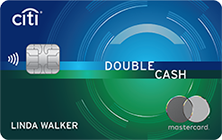
This card offers a flat 2% cash back on all spending. You'll earn 1% on your purchase and another 1% when you pay it off. The card also offers 5% cash back on hotels, car rental and attractions when you book through the Citi Travel portal. Rewards are offered as Citi ThankYou points, which you can redeem for a statement credit, a check or a direct deposit into your bank account at a rate of 1 cent per point.
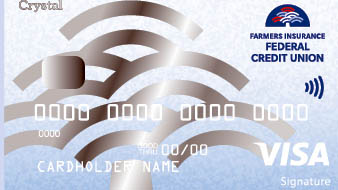
The Crystal Visa allows you to earn a remarkable 3% cash back on all purchases for the first year, with no annual fee. From year two onward, the $99 annual fee kicks in, and you'll earn an unlimited 2.5% cash back. Each month, the amount of spending that exceeds $10,000 doesn’t earn rewards, which are redeemable as points that you can exchange for cash back. Farmers Insurance FCU is open to anyone nationwide, provided you pay a $5 membership fee (deposited into a personal savings account) to become a member of the American Consumer Council.
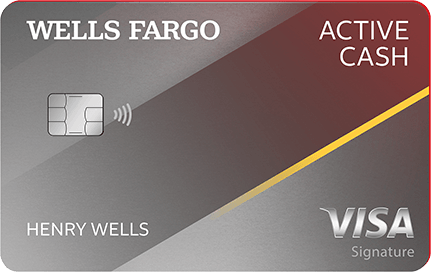
The Active Cash card is as simple as it gets: Earn an unlimited 2% on all purchases, with no spending caps or categories. You can redeem your points for statement credits, direct deposits (starting at a $25 redemption minimum) into a Wells Fargo account, purchases made through PayPal, or gift cards to any of 250 stores, with increments starting as low as $10. The redemption rate: one point equals 1 cent.
Best cards with rotating categories
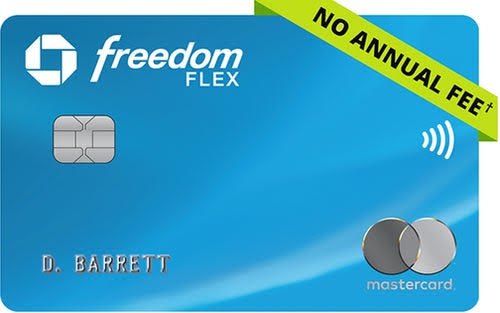
Cardholders earn 5% cash back on the first $1,500 charged in bonus categories that change each quarter. For the first quarter, categories include warehouse clubs, grocery stores and select streaming services. You'll also earn 5% back on purchases made through Chase Travel; 3% at restaurants, on eligible carryout and delivery services, and at drugstores; and 1% on all other purchases. Redeem points for travel purchases, gift cards or cash back, at a rate of 1 cent per point.
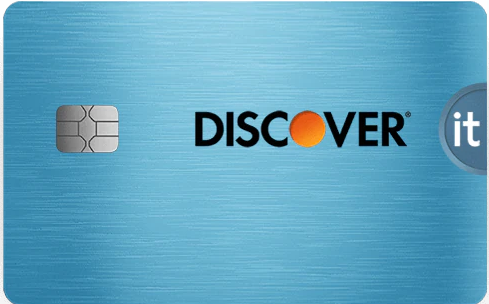
Earn 5% cash back on up to the first $1,500 charged in quarterly rotating categories. Categories for the first quarter of 2026 include streaming services, wholesale clubs and grocery stores; other 2026 quarterly categories weren’t yet announced at press time. All other purchases earn 1% unlimited cash back. Redeem rewards as statement credits or a deposit into your bank account.
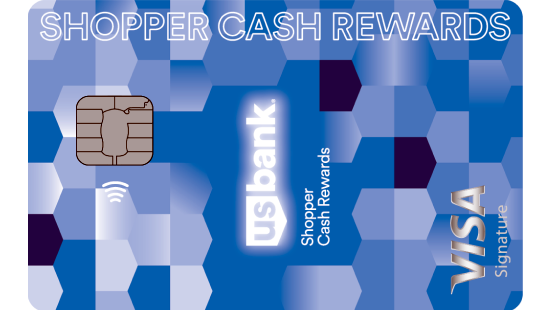
This card offers an outstanding 6% cash back on the first $1,500 spent quarterly in two retailers of your choosing. Among the options are Amazon, Apple, Best Buy, Chewy, Disney, Lowe's, Macy's and Menards.
You can also select one category that earns 3% cash back or up to the first $1,500 charged quarterly. Categories include wholesale clubs, grocery stores and gas stations. All other purchases earn a strong 1.5% back. Use your points at a rate of 1 cent each for a statement credit, a deposit into your U.S. Bank account or a gift card.
Best cards for savers
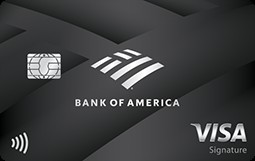
Cardholders earn two points on all travel and dining purchases and one point on other purchases. And savers who hold sizable deposits and investment balances with the Bank of America can rack up points in a hurry, thanks to its Preferred Rewards program. If you carry an average daily balance of at least $100,000 in Bank of America and Merrill Lynch investment accounts, for example, you'll get a 75% bonus on the rewards you earn (for more, see bankofamerica.com/preferredrewards). Use these points for travel purchases, statement credits or deposits to your Merrill Lynch or Bank of America accounts at a rate of 1 cent per point.
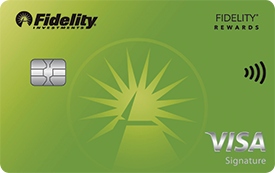
Reach your savings and investment goals faster with Fidelity’s credit card. You'll earn 2% cash back on all spending when you redeem your rewards into a qualifying Fidelity account. Eligible options include a brokerage account, IRAs, a 529 college-savings plan, or a health savings account. Plus, you can deposit rewards into the eligible account of a friend or family member—say, a grandchild’s 529 plan. Travelers earn a credit of up to $100 when they use the card to apply for TSA PreCheck or Global Entry, which provide expedited security screening at the airport.
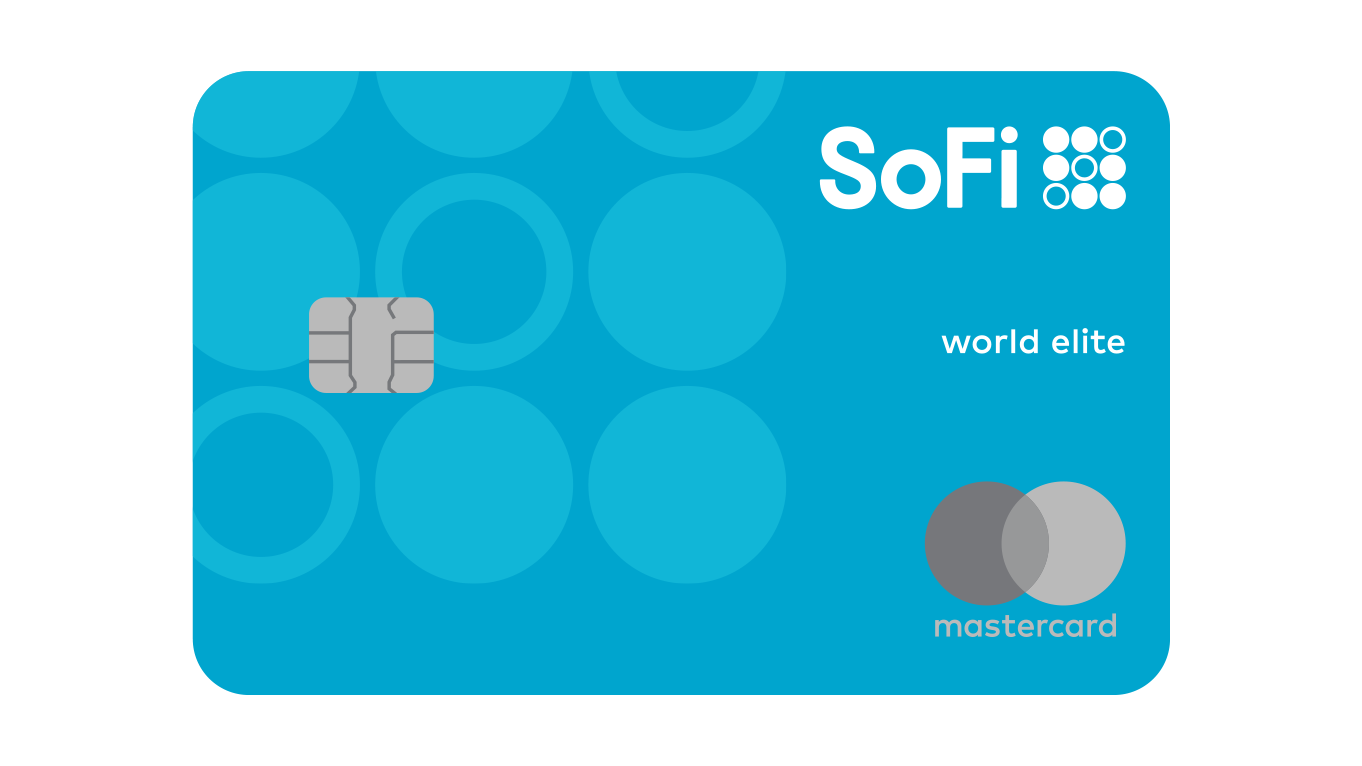
Financial-technology company SoFi offers cardholders 3% cash back on trips booked through SoFi Travel and 2% cash back on all other purchases. The benefit for savers: You can transfer their rewards back into SoFi’s high-yield savings account (recently, it offered a 3.3% rate) or a SoFi investment account.
Best rewards credit cards for groceries
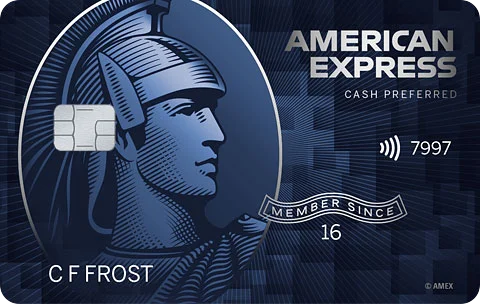
Cardholders earn an excellent 6% back on the first $6,000 charged annually at U.S. grocery stores (1% thereafter). Earn another 6% back on select streaming services, 3% on gas and transit, and 1% on other expenses. Redeem rewards for statement credits or Amazon purchases. See rates and fees
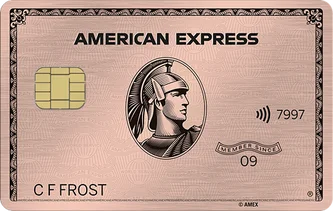
You'll receive an exceptional 6% cash back on U.S. supermarket purchases up to the first $6,000 charged, then 1%. See rates and fees
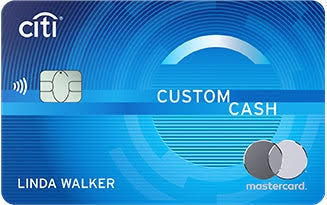
This card lives up to its name by allowing you to choose a 5% category of your choice. Categories include gas stations, select streaming providers, home improvement stores and groceries, with a $500 cap spend per statement. You'll also earn 1% back on all other purchases. Cash back is in the form of ThankYou Points, which you can redeem for statement credits, a check, gift cards or Amazon purchases.
Best credit cards for fuel and EV charging
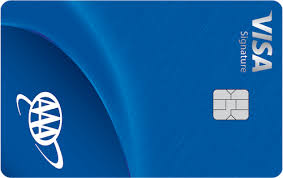
If you plan to drive often, this card has your back by allowing you to choose one 5% category, including gas stations. You can spend up to $500 per statement quarter to earn 5 ThankYou Points per dollar spent. After exceeding this cap, you'll earn 1 point per dollar charged. You'll also receive four ThankYou points per dollar spent on car rentals and hotels booked through Citi Travel and one point per dollar on everything else.
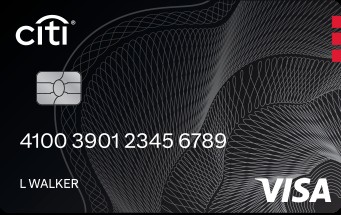
Drivers can take advantage of 5% cash back at the pump at Costco gas stations and 4% back on fuel purchases at other gas stations and on EV charging. You can spend up to $7,000 combined on gas each year to earn the 5% and 4% rewards; after that, gas purchases earn 1%.. Using the card on other purchases is as easy as 1-2-3: Earn 3% back on restaurants and travel (including Costco Travel), 2% on other Costco purchases and 1% on everything else. Cash back comes in the form of a reward certificate that you can use for Costco purchases or cash redemption.
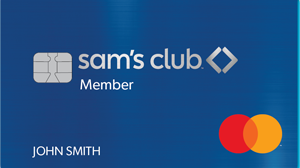
The credit card from wholesaler Sam’s Club offers 5% back on fuel purchases, up to the first $6,000 annually, then 1%. You'll also earn 3% back on Sam's Club purchases (if you're a Plus member; otherwise,1%), 3% on dining and takeout, and 1% on other spending. Redeem your cash-back rewards for purchases at any Sam's Club.
Best rewards credit cards for travel with no annual fee
To see all Kiplinger picks in each travel category, read our guide to the best travel cards.
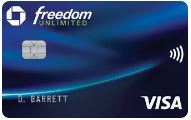
Receive 5% cash back on purchases you make through Chase Travel; 3% back at drugstores and restaurants and on eligible delivery services; and a solid 1.5% cash back on everything else. Redeem points at one cent per point for travel purchases, statement credits, direct deposits into your bank account or Amazon purchases. You can pool points you earn through this card with those earned through some other Chase credit cards, too. For example, if you have a Chase Sapphire Reserve or Preferred card, you can transfer all your points to Chase’s hotel and airline travel partners.
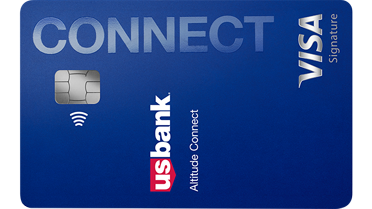
Cardholders earn five points per dollar spent on prepaid rental cars and hotels booked through U.S. Bank’s Travel Center; four points per dollar on other travel expenses, as well as on the first $1,000 charged quarterly at gas and EV-charging stations; two points per dollar at grocery stores and restaurants and on streaming services; and one point per dollar on other spending. Plus, get a complimentary Priority Pass Select membership that provides four free visits a year to participating airport lounges and a statement credit of up to $100 to offset a TSA PreCheck or Global Entry application fee.
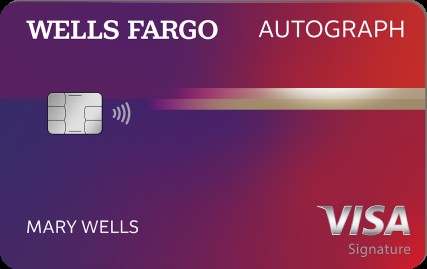
With this card from Wells Fargo, you’ll earn three points per dollar spent on travel, gas, phone plans, streaming services and restaurants. You'll also earn one point per dollar spent on all other purchases. Redeem points at a rate of a penny each for statement credits, gift cards (in $25 increments) or travel purchases.
Best travel cards worth the annual fee
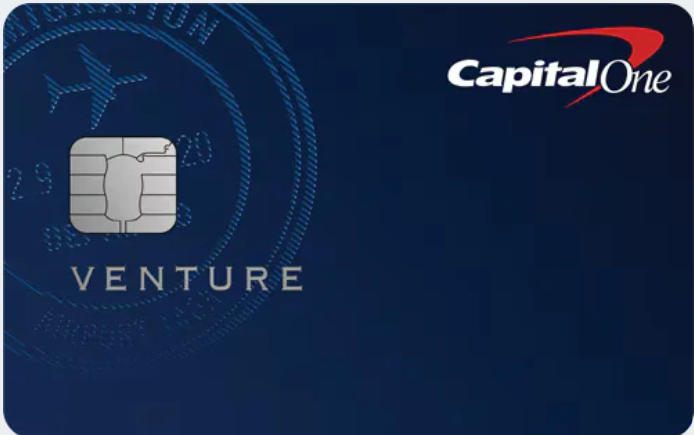
Capital One Venture provides five miles per dollar on hotels, rental cars or vacation rentals that you book through Capital One Travel and two miles per dollar on all other purchases. When you book a stay through Capital One's Lifestyle Collection of boutique hotels worldwide, you receive a $50 experience credit, which you can use for dining, drinks or activities. Other perks include a statement credit of up to $120 to offset the application fee for Global Entry or TSA PreCheck fees and five-star status with Hertz, so you can skip the long lines at the airport and gain access to your car promptly.
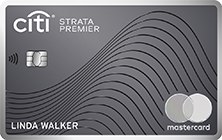
Travelers rake in ten miles per dollar spent on rental cars, hotels and attractions booked through Citi Travel. You'll also get three points per dollar spent on air travel, restaurants, electric-vehicle charging, gas stations and supermarkets, and one point per dollar on all other purchases. Each year, cardholders get a $100 discount on a hotel booking of $500 or more (excluding taxes and fees) through Citi Travel. Points are worth a penny each for travel bookings or transfers to participating airline or hotel partners.
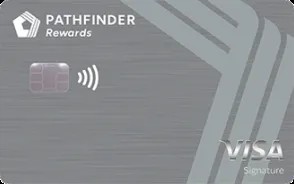
This card offers plenty of travel rewards. If you're a PenFed Honors Advantage Member, you'll earn 4x points on every travel purchase and 3x points on dining. To qualify, you need to be current or former military or open a PenFed Access America checking account. Nonmembers get three times the points on travel and double the points on dining. All other purchases earn 1 point per dollar spent. You'll also get a $120 statement credit for Global Entry every 4 years, plus a $100 annual statement credit for travel-related fees, like baggage, lounge passes, or in-flight food and drinks. To qualify, you'll need to join PenFed by opening a savings or checking account with a $5 deposit.
Best credit cards for flexible travel redemptions
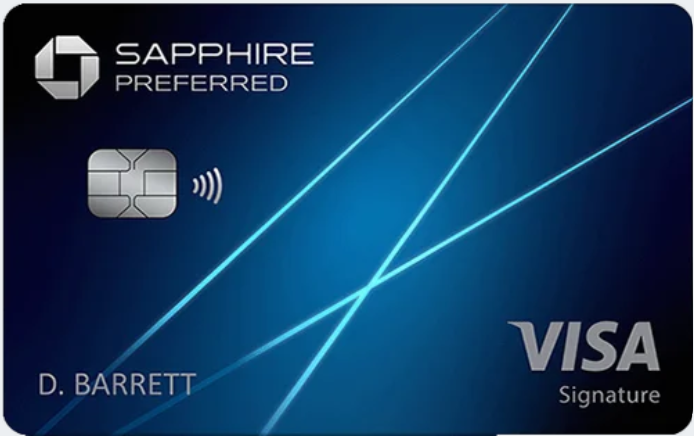
Earn five points per dollar on purchases you make through Chase Travel; three points per dollar spent on restaurants, grocery stores and select streaming services; two points per dollar on all other travel purchases. You'll also get an annual $50 hotel credit on your cardmember anniversary for stays booked through Chase Travel. Points are worth 1 cent apiece for travel redemptions through Chase, or you can transfer them to the loyalty programs of participating partners, such as British Airways, JetBlue, Hyatt, IHG, Southwest, United and Marriott.
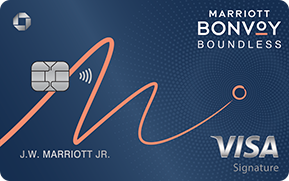
Receive six points for every dollar spent at hotels participating in the Marriott Bonvoy program (separately, you can also earn up to 11 points per dollar as a member of Marriott's loyalty program). You also earn three points per dollar on the first $6,000 in annual combined spending at gas stations, grocery stores or dining. And get two points per dollar on all other purchases. Cardholders get a free night after each yearly anniversary of opening their card, with a redemption level of up to 35,000 points. Redeem points for stays at Marriott properties or transfer them to more than 35 airlines and all the domestic carriers like Delta or American at a ratio of three Marriott points per mile.
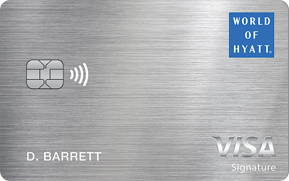
Cardholders can earn up to nine points per dollar spent on eligible Hyatt hotels when you're a World of Hyatt member. You'll also earn two points per dollar spent on airline tickets, restaurants, gym memberships and one point per dollar on everything else. Receive a free night at any category 1-4 Hyatt hotel after your card anniversary. You can also earn another free night by spending $15,000 in a year. Redeem points through travel transfer to major airlines like British Airways, American Airlines, Air France, United and more. Or, redeem your points for upgraded rooms.
Best cards for luxury travel
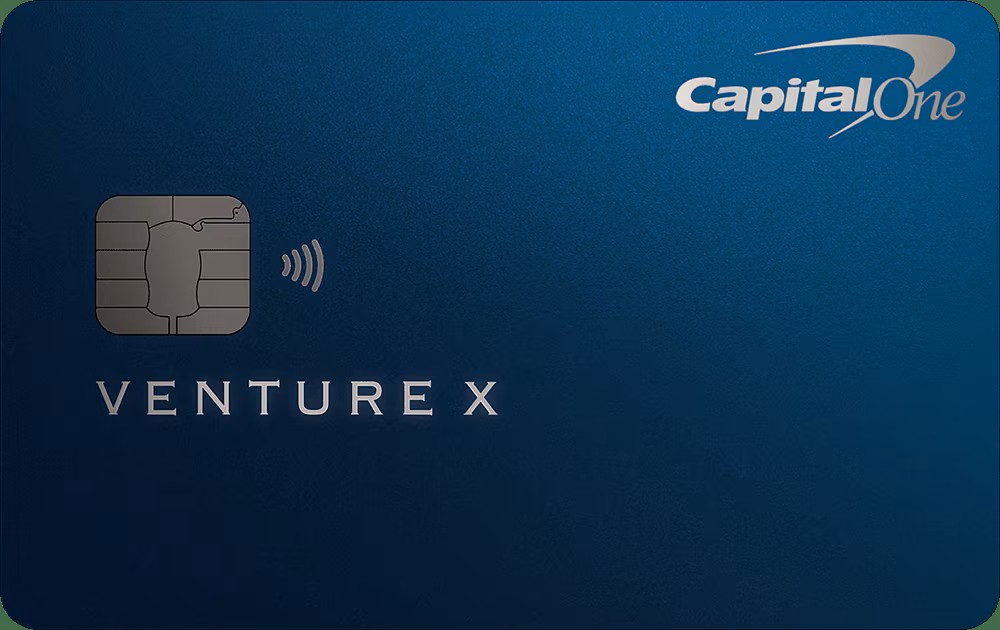
Capital One’s premium credit card comes with a lower annual fee than many of its competitors, and it offers some attractive benefits. Cardholders receive access to airport lounges in the Priority Pass network as well as Capital One’s own lounges. Plus, get a $300 annual travel credit for bookings through Capital One Travel and a yearly 10,000-mile anniversary bonus, worth $100; the value of those two perks combined offsets the card's annual fee.
You'll rack up 10 miles per dollar spent on hotels and rental cars booked through Capital One Travel. Flights and vacation rentals booked through Capital One earn you five miles per dollar, and all other purchases earn two miles per dollar.
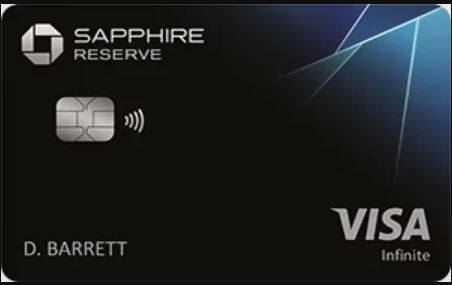
Last year, Chase raised Sapphire Reserve’s annual fee by $245 but revamped its perks, too. New benefits include a biannual credit of $250 for stays at hotels in Chase's The Edit collection, a $300 statement credit for Stubhub purchases or dining through Sapphire Reserve Exclusive Tables, free Apple TV and Apple Music (a $288 annual value) and a $120 Peloton annual statement credit.
And cardholders still earn a $300 credit annually on travel purchases and a statement credit of up to $120 after you apply for Global Entry, TSA PreCheck or NEXUS. You '’’ll also enjoy access to Chase’s own airport lounges as well as those in the Priority Pass Select network, plus access to travel designers to customize your trips based on your unique interests.
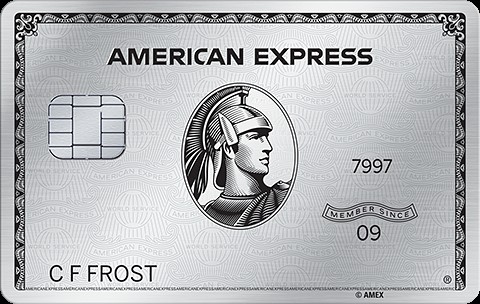
You'll earn up to a $600 annual credit for bookings through Amex Travel, access to Global Lounge Network (with over 1,550) lounges worldwide, a $200 airline statement credit, a $209 Clear Plus credit and up to a $200 annual credit for Uber purchases. You can also take advantage of a $300 annual Digital Entertainment Credit for select streaming or newspaper services.
Earn five points per dollar on flights booked directly with airlines or at Amex Travel (on up to the first $500,000 charged annually) and on prepaid hotel reservations through Amex. All other purchases earn one point per dollar. The highest point redemption rests with transferring membership points to participating travel partners, where you can earn up to two cents per point. You can also redeem points for purchases through Amex Travel at a ratio of one cent per point. . Terms apply. See rates and fees.
Best airline cards
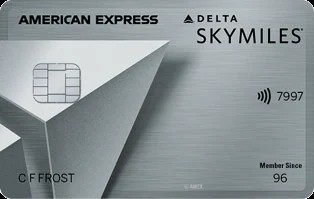
Cardholders earn three miles per dollar spent on Delta flights and hotel purchases, two points per dollar on dining and groceries, and one point per dollar on other purchases. You also receive a Companion Certificate. The Companion Certificate requires payment of government-imposed taxes and fees of between $22 and $250 (for itineraries with up to four flight segments). We like this card because cardholders can receive a 15% discount on Delta flights booked through the app or through Delta's website, accelerated Medallion status benefits with a 2,500-point benefit and $1 MDQ per $20 spent, a free checked bag on flights, Zone 5 priority boarding and a 20% discount on all in-flight purchases.
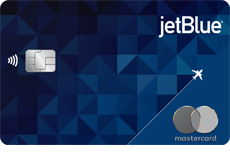
This card makes traveling rewarding by offering six points per dollar on JetBlue purchases. You'll also earn two points per dollar on restaurant and qualifying grocery store purchases and one point per dollar on other spending. Cardholders earn a free checked bag for themselves and up to three other passengers. Plus, gain 10% of your points back when you use them to book and travel on a JetBlue flight, and receive an annual statement credit of $100 if you use your JetBlue card to purchase a package from JetBlue Vacations.
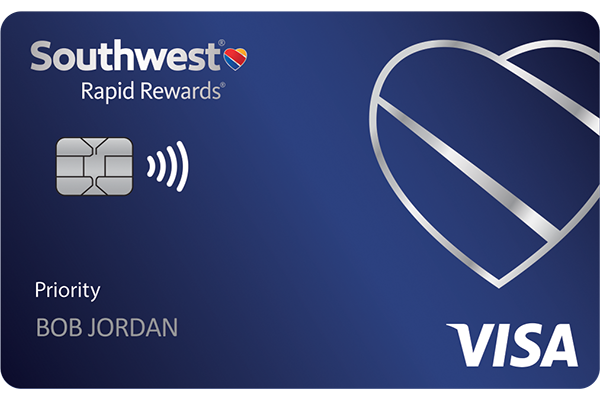
If you’re a frequent flier on Southwest Airlines, consider this card, which offers a free checked bag for you and up to eight other passengers, an annual 7,500-mile bonus on your card's anniversary and a 10,000-mile Companion Pass qualifying boost points each year which can help you reach the 135,000-point threshold necessary to have a cardholder's companion fly for free, aside from taxes and fees. You'll receive four points on every dollar spent on Southwest flights; double the points on restaurant and gas stations, and one point per dollar on other purchases.
Best hotel cards
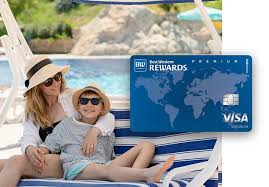
Save on Best Western hotel stays with this card, which offers ten points for every dollar spent at the hotel chain’s properties, four points per dollar on gas station and grocery store purchases, and two points per dollar on other purchases. You'll earn a free night on your annual account anniversary and another free night each year that you spend $10,000 or more on the card. If you pay for stays with your points, you can qualify for a bonus of up to 80,000 points, worth $400.

Earn 130,000 Bonus Points plus a Free Night Reward after you spend $3,000 in purchases on the Card in the first 6 months of Card Membership. Offer Ends 4/15/2026.
If you frequently stay at Hilton properties, you can get a lot of value out of this card, which offers 12 points per dollar on Hilton purchases; six points per dollar on dining and gas; four points per dollar on retail purchases; and three points for every dollar spent on other items. The Surpass card also grants you complimentary Hilton Honors Gold status, a $50 statement credit each quarter for Hilton purchases, and a complimentary night after you spend $15,000 on the card in a calendar year. See rates and fees.
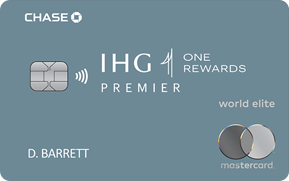
Bundling perks with your IHG status can help you earn up to 26 points per dollar on stays at IHG properties, which include Kimpton, Hotel Indigo, Crown Plaza, Holiday Inn and Regent. You also earn five points per dollar spent on travel, dining and fuel, and three points per dollar on other purchases. Extra benefits include automatic IHG Platinum Elite status, a complimentary night on your cardmember anniversary (at a redemption level of up to 40,000 points), and a $100 statement credit and 10,000 bonus points when you spend $20,000 in a year.
Best dining rewards cards
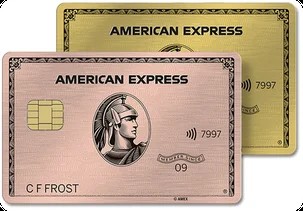
This card rewards diners with 4 points per dollar spent on the first $50,000 in annual restaurant charges worldwide. You'll earn three times the points on flights booked through Amex Travel, double the points on prepaid hotels and one point per dollar on all other purchases. And if you prefer to cook at home, you won’t miss out, receiving four points per dollar on up to $25,000 in annual purchases at U.S. supermarkets. After, it's one point per dollar spent on both.
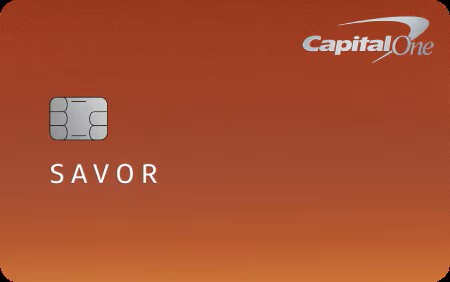
With this card, you'll earn 3% back on restaurant spending as well as on entertainment and grocery-store purchases, as well as on eligible streaming services. You'll also receive 5% back when you book hotels, vacation rentals or rental cars through Capital One Travel. For all other purchases, earn 1% back on every dollar spent. Redeem your cash back for statement credits or cash back at a one cent per point ratio. If you have the Capital One Venture X card, you can transform the 3% cash back into miles to use through Capital One Travel or participating travel partners.
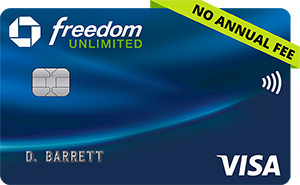
Cardholders earn 3% back on all dining purchases and 5% back on purchases made through Chase Travel. All other spending earns you a solid 1.5% back. You'll also receive a complimentary six-month DashPass membership, giving you access to takeout and delivery services through DoorDash or Caviar.
Best cards for small businesses
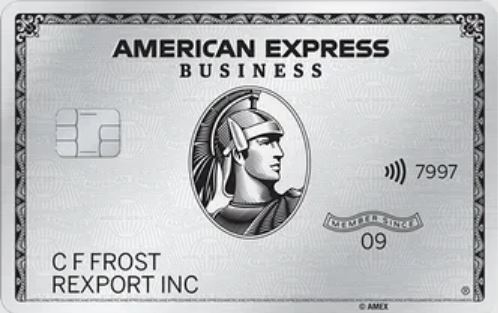
Annual fee: $895
Sign-up bonus: Up to 300,000 membership points if you spend $20,000 in in the first 3 months. Welcome offers vary, and you may not be eligible for an offer.
This card rewards business travelers with a generous $600 annual hotel credit when you book stays through Amex Travel or the American Express Fine Hotels & Resorts program. Cardholders are also eligible for the Global Lounge Collection, including access to Amex’s Centurion Lounges and 10 Delta Sky Club visits annually when flying with Delta. Earn an annual credit of up to $200 for stays at Hilton hotels, a $200 incidental airline credit, and a $209 yearly statement credit for a CLEAR Plus membership.
Cardholders also earn a $360 annual credit for purchases with the job-search platform Indeed credit, a $120 annual credit for purchases made directly with a wireless phone provider, and a generous reward structure that makes earning points easy. You'll earn five points per dollar for all purchases you make through Amex Travel and two points per dollar on certain business expenses, as well as on transactions of $5,000 or more. All other purchases earn one point per dollar charged.
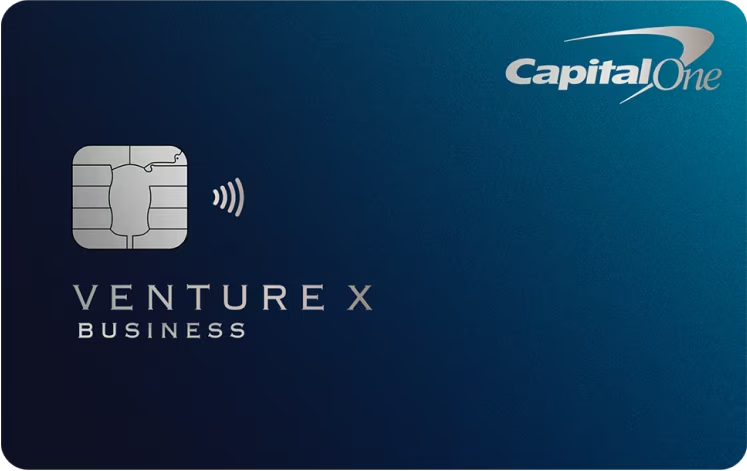
Annual fee: $395
Sign-up bonus: 150,000 bonus miles if you spend $30,000 in the first three months
If you favor simplicity with your rewards, check out this card, which provides two miles per dollar on most purchases. Plus, get 10 miles per dollar on hotels and rental cars that you book through Capital One Travel and five points per dollar on flights and vacation rentals. You also get a $300 annual credit for purchases you make through Capital One Travel and 10,000 bonus miles each year on the anniversary of opening your card.
The card grants business travelers access to Capital One’s airport lounges as well as more than 1,300 lounges worldwide in the Priority Pass network
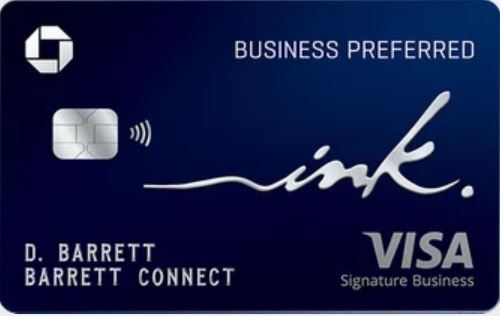
Annual fee: $95
Sign-up bonus: 100,000 points if you spend $8,000 in the first three months
This card provides extra points on core business needs, providing three points per dollar on the first $150,000 spent yearly on shipping, phone, internet and travel services, and advertising purchases made through social media companies and search engines. You'll also earn five points per dollar on Lyft rides and one point per dollar on all other purchases. Transfer your points at a 1:1 ratio to the loyalty programs of participating airlines and hotels, or redeem them at a rate of 1 cent apiece for cash back, travel or gift cards to over 175 participating retail brands.
Best cards for shopping rewards
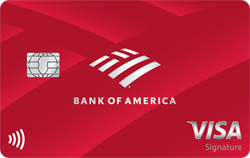
Sign-up bonus: $200 back if you spend $1,000 in the first 90 days
For the first year, shoppers can earn an impressive 6% back in a category of their choice, with the rate dropping to 3% after a year. Categories include online shopping, travel, home improvement and furnishing stores, dining, gas stations, and more. You also earn 2% back on all grocery and wholesale-club purchases. The 6% (or 3%) and 2% rewards rates are limited to the first $2,500 in combined spending each quarter; after that, you get 1% back. All other spending earns 1% back, too.
If you have a banking or investing relationship with Bank of America or Merrill, you can boost your cash back rewards through the Preferred Rewards program. Depending on the daily balances you hold with Bank of America personal deposit accounts and Merrill investment accounts, you may get a bonus of as much as 75% on your cash back earnings with the credit card.

Sign-up bonus: $200 back if you spend $1,500 in the first six months
This card offers shoppers 5% back on up to $500 charged monthly in whichever of the ten categories they have with the highest spending. Eligible categories include restaurants, gas stations, select travel, select transit, home improvement stores, select streaming services, grocery stores, drugstores, fitness clubs and live entertainment. Citi automatically detects where you're charging the most and adjusts your categories monthly to help you maximize your cash back earnings.
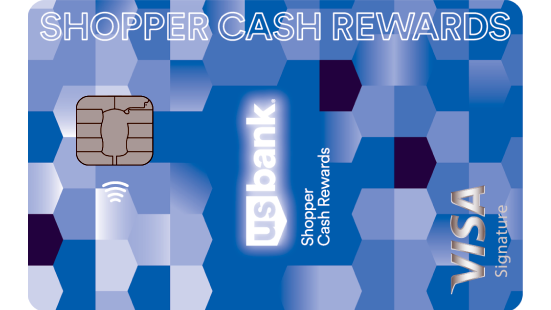
Annual fee: $95, waived the first year
Sign-up bonus: $250 back if you spend $2,000 in the first 120 days
This card stands out by allowing cardholders to get 6% back at two retailers they choose . Eligible retailers include Apple, Amazon, Chewy, Macy's, the Home Depot, Walmart, Target and more. The 6% rate applies to the first $1,500 in combined quarterly spending with the retailers. You also get 3% back on up to $1,500 spent quarterly in one everyday category of your choice: wholesale clubs, utilities, or gas or EV charging. For all other purchases, you'll earn 1.5% back.
Advice on using rewards credit cards
If you're planning to do a lot of traveling this year, look for a card that offers points or miles you can redeem for a variety of travel purchases.
"Travel rewards can be more lucrative than straight cash back, but they're also more work," says Ted Rossman, senior industry analyst with Bankrate.
"It takes some research to understand the loopholes, and some flexibility to be able to travel on the optimal dates," he said. "Some people love this, treating it like a game and juggling a bunch of different cards to get great benefits. Most people, though, would rather keep it pretty simple."
While frequent travelers can gain sizable benefits from the lucrative perks and bonuses that come with many travel cards, the humble cash-back card that provides a flat payback on all spending is often the best fit for other spenders.
"For most people, a no-annual-fee, 2% cash-back card is simple but hard to beat," adds Rossman. "Treat it like a 2% discount on everything you buy."
Before you sign up for a rewards credit card, take a hard look at your spending habits. These cards make sense only if you pay your credit card balance in full and on time every month. If you carry a balance from month to month, you’ll usually pay interest, which will counteract the benefits of any rewards you earn.
Whatever you do, avoid chasing credit card rewards if you're in debt.
Kiplinger's Review Methodology
For each card, we have calculated a typical annual reward based on spending patterns in the U.S. Bureau of Labor Statistics Consumer Expenditure Survey and assuming $36,000 spent on the card annually (unless otherwise noted).
For cards that do not waive their annual fee the first year, we’ve subtracted the annual fee from the cash value of the annual reward. We have also considered factors such as ease and flexibility of earning and redeeming rewards and whether you must be a member of a club or financial institution to apply for a card.
Except where noted, rewards do not have expiration dates or caps, and the travel-oriented cards do not charge foreign transaction fees.
Interest rates, fees, rewards and other terms listed in this article are subject to change. Before you apply for a credit card, check its current terms and conditions with the issuer.
What are points or miles worth?
With cash-back rewards, the value you're getting is straightforward. If you have a 2% rewards rate and spend $100, you'll earn $2 in rewards.
With points and miles, however, valuations vary depending on the program and even the card.
General rewards programs, such as Chase Ultimate Rewards or American Express Membership Rewards, offer a specific value for each redemption option. For example, you might get one cent per point on travel redemptions but only 0.7 cents per point for online shopping.
With airline and hotel rewards programs, the value of your points or miles depends on several variables, including the travel dates, destination, fare class, hotel category and more.
How to pick a rewards credit card
There are a few different factors to consider to determine which rewards credit card is the right fit for you.
Credit score
If you want good approval odds for the best rewards credit cards, you'll want good or excellent credit. Check your credit score before applying for a card to gauge your approval odds.
Make sure you know what a good credit score is and how to increase your credit score quickly if it's in the dumps. You might also consider getting pre-approved, if possible.
American Express, for instance, tells applicants whether or not they're approved with no hard credit inquiry. You'll undergo a hard credit check only if you accept the card.
Spending habits
Review your budget to see whether it makes sense to get a rewards credit card that offers bonus cash back, points or miles on some of your biggest monthly expenses.
If you need a budgeting app, Quicken Simplifi is an excellent choice. It will categorize your spending habits, allowing you to see which cash-back card works best for your current needs.
Also, if you're looking for a credit card with a welcome bonus, make sure you can meet the spending requirement to earn the bonus without overspending.
Feature preferences
Review the different features credit cards come with to determine what's most important to you. For example, do you need a 0% APR promotion for a large purchase or a balance transfer? Or do you prefer a travel credit card with a lot of perks and trip protections?
If you're looking at travel credit cards, consider how flexible you want your rewards to be. For example, if a card has transferable points or miles, make sure the partner airline or hotel programs include those you're likely to use or where you already have an account. Also, consider whether you want to pay an annual fee or what it would take in terms of card benefits for you to agree to an annual fee.
Take your time to shop around and compare several credit cards to ensure you find the right one for you.
Read More
- Credit Card Bonuses for New Cardholders
- Pay Less for Disney Plus With This Card
- Hilton Honors Offers a Bonus Worth $930
- Best Airline Credit Cards with a Free Ticket
As an independent publication dedicated to helping you make the most of your money, the article above is our view of the best deals and is not the opinion of any entity mentioned such as a card issuer, hotel, airline etc. Similarly, the content has not been reviewed or endorsed by any of those entities.
Profit and prosper with the best of Kiplinger's advice on investing, taxes, retirement, personal finance and much more. Delivered daily. Enter your email in the box and click Sign Me Up.

Sean is a veteran personal finance writer, with over 10 years of experience. He's written finance guides on insurance, savings, travel and more for CNET, Bankrate and GOBankingRates.
- Lisa GerstnerEditor, Kiplinger Personal Finance magazine
-
 8 Boring Habits That Will Make You Rich in Retirement
8 Boring Habits That Will Make You Rich in RetirementThese mundane activities won't make you the life of the party, but they will set you up for a rich retirement. Discover the 8 boring habits that build real wealth.
-
 QUIZ: Are You Ready To Retire At 55?
QUIZ: Are You Ready To Retire At 55?Quiz Are you in a good position to retire at 55? Find out with this quick quiz.
-
 10 Decluttering Books That Can Help You Downsize Without Regret
10 Decluttering Books That Can Help You Downsize Without RegretFrom managing a lifetime of belongings to navigating family dynamics, these expert-backed books offer practical guidance for anyone preparing to downsize.
-
 10 Decluttering Books That Can Help You Downsize Without Regret
10 Decluttering Books That Can Help You Downsize Without RegretFrom managing a lifetime of belongings to navigating family dynamics, these expert-backed books offer practical guidance for anyone preparing to downsize.
-
 New Ways to Keep Online Accounts Safe
New Ways to Keep Online Accounts SafeAs cybercrime evolves, the strategies you use to protect yourself need to evolve, too.
-
 Can Your Car Insurance Add Strangers to Your Policy? A Florida Class Action Lawsuit Could Decide
Can Your Car Insurance Add Strangers to Your Policy? A Florida Class Action Lawsuit Could DecideA Florida driver says GEICO added complete strangers to her car insurance policy and jacked up premiums as a result.
-
 Life Loves to Throw Curveballs, So Ditch the Rigid Money Rules and Do This Instead
Life Loves to Throw Curveballs, So Ditch the Rigid Money Rules and Do This InsteadSome rules are too rigid for real life. A values-based philosophy is a more flexible approach that helps you retain confidence — whatever life throws at you.
-
 The Best Short-Term CD for Your Cash in 2026
The Best Short-Term CD for Your Cash in 2026This strategy can help you earn thousands in months.
-
 Thinking of Switching Phone Carriers? Do These 8 Things First
Thinking of Switching Phone Carriers? Do These 8 Things FirstSwitching carriers is easier than ever, but overlooking the fine print could cost you. Here’s what to check before you make the move.
-
 Samsung Galaxy S26 Ultra: What to Know Before You Upgrade
Samsung Galaxy S26 Ultra: What to Know Before You UpgradeThe Galaxy S26 Ultra brings new features and strong launch deals, but whether it’s worth upgrading depends on what you already own.
-
 What Is an Assumable Mortgage and Could It Save You Thousands?
What Is an Assumable Mortgage and Could It Save You Thousands?With mortgage rates still elevated, taking over a seller’s existing home loan could lower monthly payments — if the numbers work.